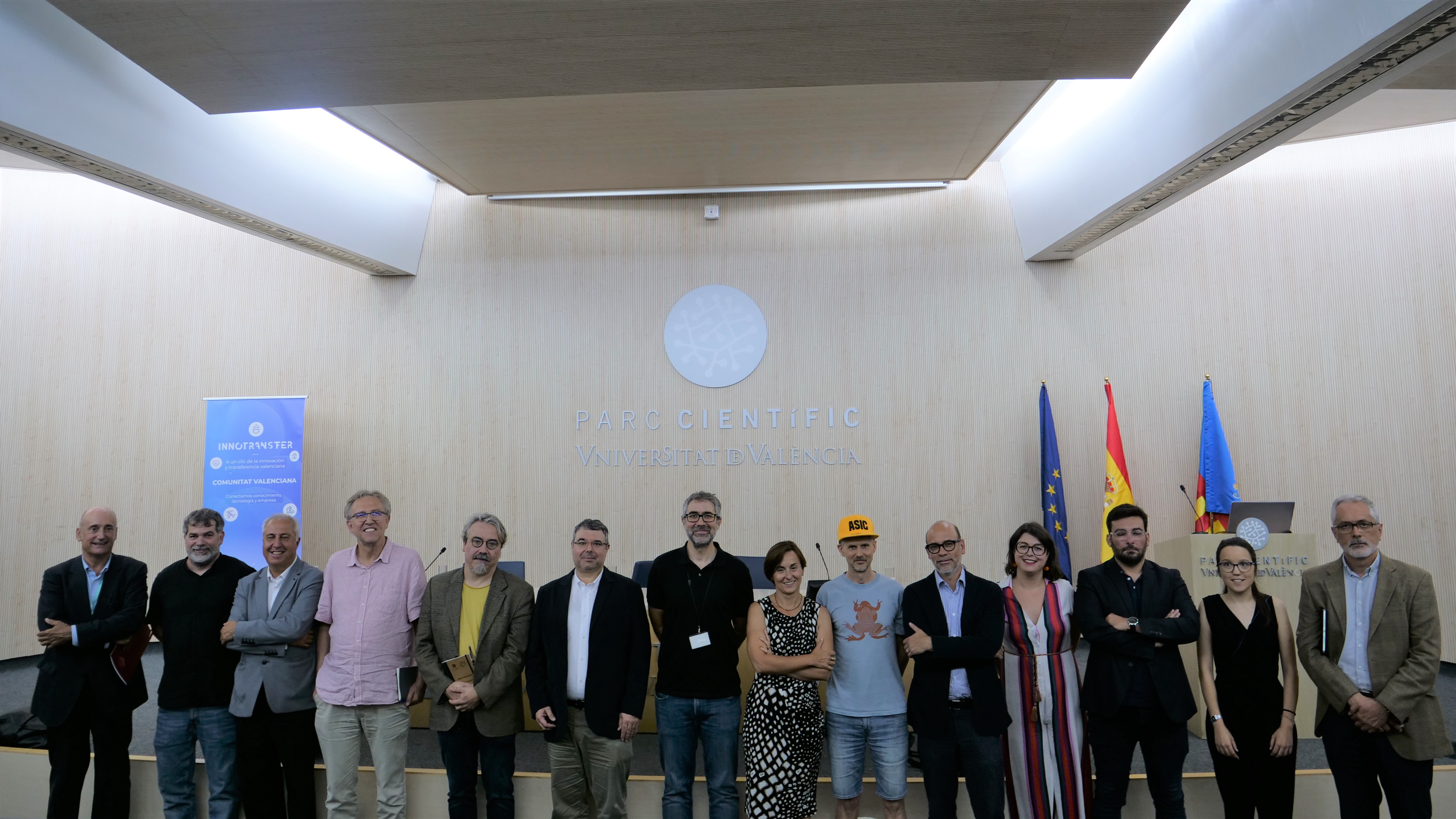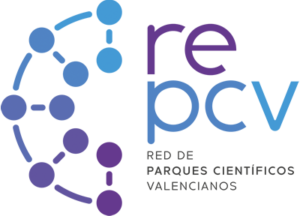Companies, research groups and reference entities in the microelectronics sector analyze the keys to the semiconductor industry in the first event of 2023 of Innotransfer, an open innovation program promoted by the five Valencian science parks with the support of the Agència Valenciana de la Innovació (AVI)
In a context marked by the challenges of the chip industry, the Valencian Community represents one of the poles of microelectronic design in Spain as a whole, accumulating more than 60% of all national activity in the semiconductor sector. Some of the most important multinationals have established their headquarters in the Valencian territory, attracted both by the logistic facilities and the talent generated by the universities.
The opportunity to boost the microelectronics sector in the Valencian Community, not only in the present but also in the future, represents an opportunity for growth for companies in this field thanks to the call for 12,500 million euros in aid from the PERTE for microelectronics and semiconductors approved by the Spanish Government. This was one of the points that were highlighted at the meeting Microelectronics: The challenges of the new engine of the Valencian economy, which was held on June 21 at the Marie Curie Auditorium of the University of Valencia Science Park (PCUV), within the open innovation program Innotransfer, which has the support of the Valencian Innovation Agency (AVI).
In this line, Olivia Estrella, the General Secretary of the Agència Valenciana de la Innovació (AVI) emphasizes that the political institutions must work so that "in 2030 20% of the world production of semiconductors will be in Europe, when now there is barely 10%". In this sense, she stresses that "reinforcing the technological leadership of the European Union and consolidating a cutting-edge chip ecosystem is one of the priority objectives for the executive led by Ursula von der Leyen, who has designed specific legislation baptized as the 'Chip Law'," which, according to her, "will mobilize 43 billion euros between public and private funds".
%20ok.jpg?width=721&height=405&name=P1288475%20(2)%20ok.jpg)
(From right to left) Olivia Estrella, General Secretary of the Valencian Agency for Innovation (AVI); and Rosa María Donat, Vice-Rector for Innovation and Transfer of the University of Valencia during the Innotransfer event. Photo: FPCUV
"The incipient semiconductor sector of the Valencian Community has a very important role in PERTE and it is in its favor that there is 60% of Spanish research and industrial design of microchips and semiconductors here in the metropolitan area of Valencia, but also with a seed of research and technological development in other provinces such as Castellón and Alicante," said Estrella.
For her part, Rosa Donat, the vice-rector for Innovation and Transfer at the University of Valencia, comments that "the university-industry combination in the Valencian Community is in a position to contribute significantly to the achievement of objectives in the microelectronics sector". "It is more than evident that companies in the sector in our territory need the strategic support of Valencian universities, which are committed to the advancement of knowledge, digitization, research in microelectronics and artificial intelligence and new materials, and have the potential to place the Comunitat Valenciana at the frontier of knowledge," she concluded.
"It is more than evident that companies in the sector in our territory need the strategic support of Valencian universities, which are committed to the advancement of knowledge, digitization, research in microelectronics and artificial intelligence and new materials, and have the potential to place the Valencian Community at the frontier of knowledge," Rosa Donat, Vice Chancellor for Innovation and Transfer of the University of Valencia
Perspective of companies linked to Valencian science parks
Thus, Javier Calpe, design Center Manager at Analog Devices, expressed his concerns regarding "a very global sector where the market is highly segmented", so that, according to him, "the ecosystem is very diverse", and this fact, currently, indicates that "it will impact the sector in a very negative way, because from the beginning it has embraced globalization, not because of cost issues, but because of specialization". Calpe also advocates "putting the emphasis on talent, and working every day". Within this problem suffered by this sector, Jorge Victoria, Senior Product Manager EMC Shielding & Thermal Materials at Würth Elektronik, points out that the fact that "research here goes much further is not going to allow us to overcome the experience gap with respect to Southeast Asia, which has led the entire market for years." "I think there is plenty of talent here and there always has been, the problem has been the conditions in which we have had the new talents and also, we have not retained or empowered them," he regrets.
Marcos García, Office Manager of B&R Automation, explained that the possibility of having a microchip manufacturing base in Europe benefits everyone, because "many times people think that microchips do not feed you", but in the end "this is not true, because microchips are involved in the manufacture of basic products such as bread, ice, tomatoes, or even a mattress", he warns. In the case of EMXYS, José Antonio Carrasco, CEO and co-founder, identified some of the achievements in which they are involved, such as the construction of their own microsatellite or other developments for space missions. Matthew Venn, CEO and founder of ChipFlow, emphasized "the problem of supply chains" and warned that "many more people are needed to work in this field."
"I think there is plenty of talent here and there always has been, the problem has been the conditions in which we have had the new talents and also, we have not retained or promoted them," Jorge Victoria, Senior Product Manager EMC Shielding & Thermal Materials at Würth Elektronik
%20ok.jpg?width=810&height=455&name=P1288492%20(2)%20ok.jpg) (From right to left) Jorge Victoria, Senior Product Manager EMC Shielding & Thermal Materials at Würth Elektronik; and Marcos García, Office Manager at B&R Automation during the Innotransfer event. Photo: FPCUV
(From right to left) Jorge Victoria, Senior Product Manager EMC Shielding & Thermal Materials at Würth Elektronik; and Marcos García, Office Manager at B&R Automation during the Innotransfer event. Photo: FPCUV
Collaborations and grants to promote the Valencian Community and Spain in the microelectronics industry
The PERTE aids of microelectronics and semiconductors, mark a sector, which tries to gain momentum within the Comunitat Valenciana with the emergence of collaborations and aid to promote synergies in the region and in the country to support the microelectronics industry. For this reason, organizations such as Valencia Silicon Cluster were born, which with Mayte Bacete as director, seeks to "give value to companies in the sector that are in the Comunitat Valenciana and also nationally." "It was created in 2022 with the aim of making more known what can be done in microelectronics and photonics and join forces with universities to carry out actions that make this sector can grow", and in turn, she adds that "following the PERTE chips and Chips Act in Europe, we realized the strength we had in València".
"Our role is to convey the concerns and challenges of the industry," says Eduardo Valencia, head of the Microelectronics Sector of the Multisectoral Association of Spanish Electronics and Communications Companies (Ametic), in relation to the aid and synergies that promote from the association he represents, which is formed by "a group of companies that promote that Spanish citizens benefit from the actions that we carry out from the association regarding the digital economy", and thus "have a country with better companies, jobs and industry". For his part, Emilio Iglesias, head of the Institutional Promotion and Territorial Cooperation Department of the Center for Industrial Technological Development (CDTI), put on the table the keys to the 'Chip Missions' call, which is part of the PERTE Chip.
%20ok.jpg?width=831&height=468&name=P1288701%20(2)%20ok.jpg) (Left to right) Càndid Reig, professor of Electronic Engineering at the School of Engineering of the University of Valencia (ETSE-UV); Eugenio Coronado, director of the Institute of Molecular Science (ICMol); Roberto Llorente, director of the Nanophotonics Technology Center (NTC); Carlos Mariñas, CSIC Ramón y Cajal researcher at the Institute of Corpuscular Physics (CSIC-UV); and Daniel Torrent, researcher at the Optics Research Group (GROC) of the Universitat Jaume I of Castelló; and Kristin Suleng, head of Marketing and Communication of the Fundació Parc Científic de la Universitat de València. Photo: FPCUV
(Left to right) Càndid Reig, professor of Electronic Engineering at the School of Engineering of the University of Valencia (ETSE-UV); Eugenio Coronado, director of the Institute of Molecular Science (ICMol); Roberto Llorente, director of the Nanophotonics Technology Center (NTC); Carlos Mariñas, CSIC Ramón y Cajal researcher at the Institute of Corpuscular Physics (CSIC-UV); and Daniel Torrent, researcher at the Optics Research Group (GROC) of the Universitat Jaume I of Castelló; and Kristin Suleng, head of Marketing and Communication of the Fundació Parc Científic de la Universitat de València. Photo: FPCUV
Perspective of the research groups
Within this incipient industry, much of the blame for the leadership figures in the Valencian Community is also partly due to the large number of research groups installed in the territory. In this sense, Càndid Reig, professor of Electronic Engineering at the School of Engineering of the University of Valencia (ETSE-UV), explains that they work "in a quite different way to large companies, and that is that we have to go to public funding calls and eventually have the possibility of establishing contacts and contracts with companies, but we are linked to this way of working, which obviously conditions the ways in which we define our lines of research and our strategies". In turn, Roberto Llorente, director of the Nanophotonics Technology Center (NTC), points out that his group covers "areas of both science and technology: systems, devices and nanomaterials".
Also, in relation to this topic, Carlos Mariñas, Ramón y Cajal researcher of the CSIC at the Institute of Corpuscular Physics (CSIC-UV), states that both the Valencian Community and Spain have "infrastructure and knowledge to lead". This fact confirms the existence of groups such as the Optics Research Group (GROC) of the Universitat Jaume I of Castelló, of which Daniel Torrent is a member, who explained that his project deals "with the generation of surface acoustic waves". Likewise, Eugenio Coronado, director of the Institute of Molecular Science (ICMol), explained the areas of development in microelectronics that work in the institute he directs.
"We work in a quite different way from large companies, and that is that we have to go to calls for public funding and we have the possibility eventually to establish contacts and contracts with companies, but we are linked to that way of working, which obviously conditions the ways in which we define our lines of research and our strategies," Càndid Reig, professor of Electronic Engineering at the School of Engineering of the University of Valencia (ETSE-UV)
Closing
From a more international point of view, Luc Yao, operating partner of TAcc+, an accelerator of Taiwan's Ministry of Economic Affairs and ITRI, notes that "Taiwan is trying to bring more electronics manufacturing and know-how to Europe so we can connect much more." "I think it's very good that European companies and startups are working with Taiwan to trigger more innovation," he says. He also highlights Taiwan's growth in recent years in terms of economy and microelectronics, and gave as an example his country, which went from labor-intensive industry in a few years to being the high-tech leader in semiconductors worldwide.
With the support of:




-1.png?width=800&height=248&name=Convivencia%20TOTS%20A%20UNA%20VEU-01%20(1)-1.png)